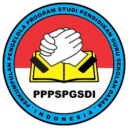EFEKTIVITAS METODE PEMBELAJARAN PENDIDIKAN JASMANI PLAY-TEACH-PLAY TERHADAP PENINGKATAN KEBUGARAN SISWA SEKOLAH DASAR
DOI:
https://doi.org/10.35568/naturalistic.v3i1.275Keywords:
Play teach play, fitnessAbstract
The problem in this study is the low fitness of elementary school students. This problem is due to the absence of a method of teaching sports that is in accordance with the development and characteristics of elementary students. Characteristics of elementary school children tend not to like the explanation of the theories and concepts of physical education teachers, they want fun learning. Fun learning can be done through the game method so that children are interested in continuing to move. The long-term goal of this study is to apply game methods in sports learning in elementary schools that support the optimal learning process of sports to improve fitness. While the specific objective is to get a real picture of the effectiveness of the play-teach-play method on the fitness of elementary students in the area of ??Tamansari sub-district in Tasikmalaya city. This study uses a quantitative approach to the experimental method, the population in this study is the fifth grade elementary school students in the city of Tasikmalaya in the academic year 2017/2018. Samples were taken by random sampling. The analysis of data obtained from the field using statistical calculations in the form of 1) normality test 2) t test 3) Difference in gain. The results showed that play play play was able to improve students' fitness with the difference from the pre-test and post test on average> 50 percent. The conclusion of play play play has an effect on improving students' physical fitness. The effectiveness of play teach play in terms of motivation to participate in sports lessons is greatly increased.
Downloads
Downloads
Published
Versions
- 2020-07-06 (2)
- 2018-10-30 (1)
How to Cite
Issue
Section
License
Copyright of Journal Naturalistic : Jurnal Kajian Penelitian Pendidikan dan Pembelajaran (e-ISSN:2548-8589, p-ISSN:2528-2921).
Open Access Policy
This journal provides immediate open access to its content on the principle that making research freely available to the public supports a greater global exchange of knowledge.
This journal is open access journal which means that all content is freely available without charge to users or / institution. Users are allowed to read, download, copy, distribute, print, search, or link to full text articles in this journal without asking prior permission from the publisher or author. This is in accordance with Budapest Open Access Initiative.






